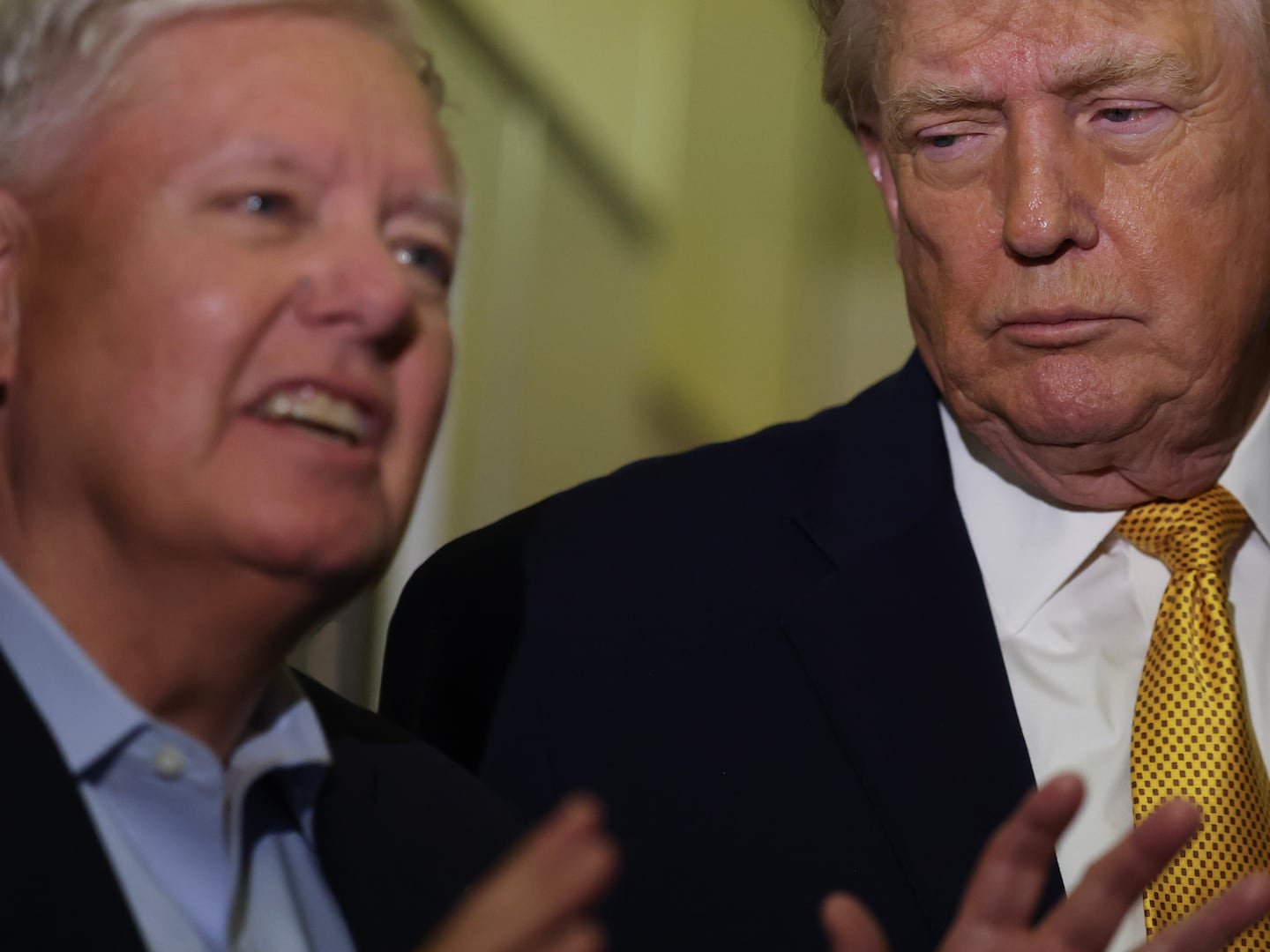It's been standard practice to mock Tom Cruise since he jumped on Oprah Winfrey’s couch. During a 2005 interview with Winfrey, he jumped on her couch and generally acted bonkers in front of a studio audience while declaring his love for then-girlfriend Katie Holmes. The incident has been cited as killing his public image, and since then Cruise has had to duck accusations that he’s box-office poison as he racked up flops like Lions for Lambs, Knight and Day, and last weekend’s The Mummy. The Mummy, a $125 million domestic disaster (it’s faring better overseas) was supposed to launch Universal Pictures’ new Dark Universe franchise, but has instead put the subsequent films’ fates in question—and all the blame is being laid on Cruise. But is it undeserved and is Cruise still a bankable star? One of Hollywood’s last?
In the aftermath of The Mummy, a recent Variety hit piece claimed Cruise’s “excessive control” was behind the film’s woes. According to set sources, “Cruise acted like the top gun he once was, calling all the shots” and being on set with Cruise is like harkening back to the days when Hollywood stars could command complete control of a film along with outsize perks, in exchange for driving ticket sales. Unfortunately for Cruise, those ticket sales have lately been few and far between. His past decade of films has been mostly box-office bombs. But are audiences actually tired of Cruise? The success of the Mission: Impossible franchise would say no. Except for the third installment, which earned a meager $397 million, the other installments have each grossed over $400 million. The most recent nearly made $700 million worldwide, making it the franchise’s most successful and prompting a sixth film, scheduled for 2018.
It’s enough evidence that audiences aren’t actually tired of Cruise, nor do they reject him in an action franchise. So what’s the problem here? In an age of superhero films, franchises, and reboots, when it comes to action Cruise has been associated with Mission: Impossible since 1996. It stands to reason that people love Tom Cruise not because he is an “action star,” despite his best efforts to become one. His first attempt at branching out beyond the franchise to other action movies was 2002’s Minority Report. It was successful, as were 2003’s The Last Samurai and 2005's War of the Worlds. After that, his action films have brought diminishing returns that could be associated with his 2005 meltdown on not only Winfrey’s show but a combative interview with Matt Lauer in which Cruise pitted Scientology against psychiatry (he referred to it as a “pseudoscience”).
But once again there’s the success of Mission: Impossible, so if anything, it suggests that in the wake of his public-relations nightmare, Cruise decided to lean into what was working well for him at the time. Amidst 2005’s drama, War of the Worlds was a massive success, raking in over $700 million globally. It’s still the most successful film of Cruise’s career and if you’re going through yet another high-profile divorce like he did with Holmes in 2012 (his third after Mimi Rogers in 1990 and Nicole Kidman in 2001), it makes sense to go with what you think works. It explains action films like the nonsensical Oblivion and the critically acclaimed yet underperforming Edge of Tomorrow. It’s also created an obsession with franchises like Jack Reacher and The Mummy. The former was more successful (though the sequel wasn’t), but The Mummy actually provided Cruise with his best foreign box-office debut ever. It’s a flop in America, but it’s far from that overseas.
Which is why it’d be insane to count Cruise out after The Mummy. Sure, there’s always the notion in Hollywood that white men get to fail multiple times and still get another chance, but Cruise is still a bankable star overseas so it means he’s not going anywhere anytime soon. But if anything, the domestic failure of The Mummy should be an invitation for Cruise to get back to the reasons America fell in love with him in the first place. As a fresh-faced kid in films like Risky Business and Top Gun, Cruise sold audiences on his cockiness and sexiness, not on whether he could grip a gun and take on aliens.
While Mission: Impossible and War of the Worlds dominate his top 10 highest grossers, the bottom five are rounded out by non-franchise films that show off Cruise’s personality. Top Gun is more of a romance than an action movie and with confirmation from Cruise himself that a sequel is happening, it could give America a chance to fall in love with him again. But he shouldn’t stop there. Rounding out the top 10 are Rain Man, The Firm, Jerry Maguire, and A Few Good Men. When was the last time Cruise starred in a drama with a small budget? Each of those films had Cruise playing a sincere young man acting opposite a stunning romantic partner (Renee Zellweger) or a mesmerizing older actor (Dustin Hoffman, Gene Hackman, Jack Nicholson), not aliens or generic supervillains with nuclear codes at their disposal.
Most would have you think that we stopped seeing Cruise as a human after 2005, but perhaps he stopped seeing himself as human and has tried desperately to hide his sweet, often obsessive and hysterical personality behind a wall of special effects instead of baring his humanity on screen. As Roger Ebert described Cruise in Jerry Maguire, “he plays Maguire with the earnestness of a man who wants to find greatness and happiness in an occupation where only success really counts.” Maybe it’s time Cruise stopped focusing so much on success and returned to finding that bit of happiness.





